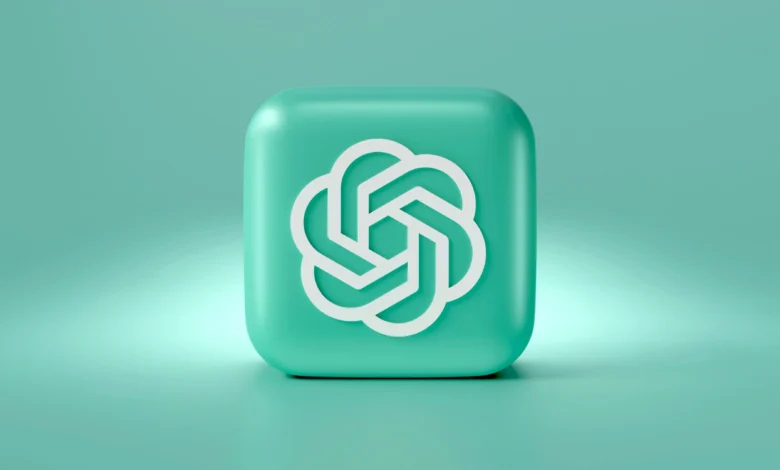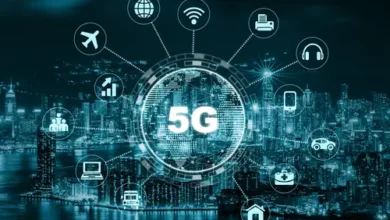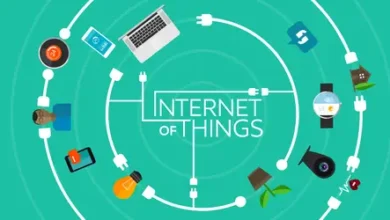Benefits of ChatGPT For Future Applications

Artificial intelligence (AI) has become a cornerstone of modern technology, driving innovation across various sectors. A significant breakthrough in AI has been the development of language models like ChatGPT. Developed by OpenAI, ChatGPT is a sophisticated AI model that can understand and generate human-like text based on the input it receives. As we look toward the future, ChatGPT and similar AI technologies hold immense potential to transform industries. It can enhance human capabilities, and address global challenges. This article explores the benefits of ChatGPT for the future, focusing on its applications, potential impact on various industries, and the ethical considerations that come with its widespread use. Here’s a detailed guide to understanding AI and its applications.
Understanding ChatGPT
ChatGPT is based on the Generative Pre-trained Transformer (GPT) architecture. It is a type of deep learning model that excels at processing and generating natural language. The model behind ChatGPT, GPT-3, features 175 billion parameters. Thereby making it one of the largest and most powerful AI models ever created. These parameters allow the model to understand context, generate coherent responses, and even engage in creative tasks such as writing poetry, drafting emails, and answering complex questions.
What sets ChatGPT apart is its ability to generate human-like text that is contextually relevant and often indistinguishable from text written by a person. This capability has made ChatGPT a versatile tool that can be applied in various domains, from customer service to education, healthcare, and beyond.
Benefits of ChatGPT in Applications
1. Customer Service and Support
One of the most immediate and impactful applications of ChatGPT is in customer service and support. Businesses are increasingly leveraging AI chatbots to handle routine inquiries, troubleshoot problems, and provide information to customers. ChatGPT can automate these interactions, providing quick and accurate responses that improve customer satisfaction while reducing the need for human intervention.
The future of customer service could see ChatGPT-powered bots handling even more complex tasks. For instance, personalized recommendations, multi-lingual support, and emotional intelligence-based interactions. This would allow businesses to offer 24/7 support at a lower cost while freeing up human agents to focus on more complex and value-added tasks.
2. Education and E-Learning
ChatGPT has the potential to revolutionize education and e-learning by serving as a personalized tutor or educational assistant. The model can provide explanations, answer questions, and guide students through complex topics in real-time. This personalized support can be particularly beneficial for students who need extra help outside of the classroom or for those learning remotely.
In the future, ChatGPT could be integrated into educational platforms to create adaptive learning experiences tailored to individual student needs. It could also assist in content creation, such as generating practice questions, quizzes, and study guides. By enhancing access to high-quality educational resources, ChatGPT can play a crucial role in bridging educational gaps and promoting lifelong learning.
3. Content Creation and Writing Assistance
Content creation is another area where ChatGPT is already making a significant impact. Writers, marketers, and content creators can use ChatGPT to generate ideas, draft articles, create social media posts, and even compose emails. The AI can help overcome writer’s block by suggesting topics or providing a starting point for creative writing.
As the technology advances, we can expect ChatGPT to become an indispensable tool for content creators. Thereby enabling them to produce high-quality content more efficiently. It could also democratize content creation by allowing individuals with limited writing skills to generate professional-grade content, thereby expanding access to digital platforms and audiences.
4. Healthcare and Medical Assistance
Technology has brought up great advances in health and medical sector. In the healthcare sector, ChatGPT has the potential to enhance patient care and support medical professionals. AI-powered chatbots can assist in scheduling appointments, providing information about medical conditions, and offering preliminary assessments based on symptoms. While ChatGPT is not a replacement for professional medical advice, it can serve as a first point of contact, guiding patients to the appropriate resources or care.
Looking ahead, ChatGPT could be integrated into telemedicine platforms to provide real-time support during virtual consultations. It could also assist in medical research by analyzing large volumes of text data, identifying patterns, and generating insights that could inform treatment plans and medical advancements.
5. Business and Productivity Tools
ChatGPT is poised to become a valuable asset in the business world by enhancing productivity and decision-making processes. The AI can be used to automate routine tasks such as drafting emails, generating reports, and analyzing data. It can also serve as a virtual assistant, helping professionals manage their schedules, set reminders, and prioritize tasks.
In the future, businesses may deploy ChatGPT to handle complex analytics, generate business insights, and assist in strategic planning. By automating time-consuming tasks and providing data-driven insights, ChatGPT can help businesses operate more efficiently and make informed decisions.
6. Creative Arts and Entertainment
The creative arts and entertainment industry can also benefit from the capabilities of ChatGPT. The AI can assist in scriptwriting, composing music lyrics, brainstorming ideas for visual arts, and even generating dialogue for video games. By collaborating with human artists and creators, ChatGPT can help push the boundaries of creativity and innovation.
In the future, we might see ChatGPT being used to create entirely new forms of art and entertainment, such as interactive stories, AI-generated music, and immersive virtual experiences. This could lead to the emergence of new genres and mediums, expanding the possibilities for creative expression.
7. Global Communication and Language Translation
ChatGPT’s language capabilities make it a powerful tool for global communication and language translation. The AI can assist in real-time translation, allowing individuals who speak different languages to communicate seamlessly. This could be particularly beneficial in international business, diplomacy, and travel, where language barriers often pose challenges.
As ChatGPT continues to improve, providing numerous benefits, it could facilitate cross-cultural communication by providing more accurate translations and understanding nuanced language differences. This could promote greater global connectivity and collaboration, breaking down linguistic barriers and fostering mutual understanding.
The Future Impact of ChatGPT on Industries
1. Transforming the Workforce
The widespread adoption and benefits of ChatGPT along with similar AI technologies is likely to have a profound impact on the workforce. While AI can automate many routine tasks, leading to increased efficiency and productivity, it also raises concerns about job displacement. However, rather than replacing human workers, ChatGPT can complement human skills by taking over repetitive tasks and freeing up employees to focus on more complex and creative aspects of their jobs.
In the future, we may see new job roles emerge that involve collaborating with AI, such as AI trainers, AI ethicists, and AI-driven creative professionals. These roles will require a blend of technical skills, creativity, and ethical judgment, highlighting the importance of upskilling and reskilling the workforce to adapt to the changing technological landscape.
2. Enhancing Accessibility and Inclusion
ChatGPT has the potential to enhance accessibility and inclusion across various sectors. For individuals with disabilities, AI-powered tools can provide assistance in communication, navigation, and accessing information. For example, ChatGPT can generate text descriptions for visual content, assist in voice-to-text transcription, and provide real-time support for individuals with cognitive or learning disabilities.
In the future, ChatGPT could play a crucial role in making digital platforms and services more inclusive by providing personalized support that meets the unique needs of diverse populations. This could lead to a more equitable society where technology empowers individuals of all abilities to participate fully in all aspects of life.
3. Driving Innovation in Research and Development
The capabilities of ChatGPT extend beyond language generation; it can also be a powerful tool for research and development (R&D). By analyzing vast amounts of data, generating hypotheses, and identifying trends, ChatGPT can accelerate the pace of innovation in fields such as science, engineering, and technology. Researchers can use ChatGPT to automate literature reviews, generate research questions, and even assist in writing research papers.
However, the rise of AI-generated content also raises ethical questions about authenticity, ownership, and the potential for misinformation. As we move forward, it will be essential to establish guidelines and standards for the responsible use of AI in communication, ensuring that the benefits of ChatGPT are realized without compromising trust and integrity.
Ethical Considerations and Challenges of ChatGPT
While ChatGPT offers numerous benefits, its widespread use also presents ethical challenges that must be addressed. As AI becomes more integrated into our daily lives, it is crucial to consider the following issues:
Bias and Fairness by use
One of the primary concerns with AI models like ChatGPT is the potential for bias. Since these models are trained on large datasets that include human-generated text, they can inadvertently learn and reproduce biases present in the data. This can result in biased or unfair outcomes, particularly in sensitive areas such as hiring, legal decisions, or content moderation.
To address this issue, developers must prioritize fairness and transparency in AI models. This includes regularly auditing the models for bias, refining the training data, and implementing mechanisms to mitigate biased outcomes. Additionally, it is essential to involve diverse perspectives in the development process to ensure that AI technologies are inclusive and equitable.
Privacy and Data Security
The use of ChatGPT involves the processing of large amounts of data, raising concerns about privacy and data security. As AI systems become more integrated into various industries, they may have access to sensitive information, such as personal data, medical records, or financial details. Ensuring the privacy and security of this data is paramount to maintaining trust in AI technologies.
Future developments in AI should prioritize data protection by implementing robust security measures, such as encryption, anonymization, and access controls. Additionally, clear guidelines and regulations should be established to govern the use of AI in handling sensitive information, ensuring that privacy rights are upheld.
Misinformation and Manipulation
AI-generated content, including text produced by ChatGPT, can be used to create convincing but false or misleading information. This has the potential to exacerbate the spread of misinformation, particularly on social media platforms where content can go viral rapidly. The ability of AI to generate realistic text also raises concerns about deepfakes and other forms of manipulation.
Addressing the threat of misinformation will require a multi-faceted approach, including the development of AI systems that can detect and flag false content, as well as public education on the risks and responsibilities of using AI-generated content. Additionally, ethical guidelines must be established to prevent the misuse of AI in spreading misinformation.
Human-AI Collaboration
As AI becomes more integrated into various aspects of life, the nature of human-AI collaboration will evolve. It is essential to strike a balance between leveraging AI’s capabilities and maintaining human oversight. While AI can augment human decision-making, it should not replace human judgment entirely, particularly in areas that require ethical considerations, empathy, or critical thinking.
Future developments in AI should focus on creating systems that support and enhance human decision-making rather than replace it. This includes designing AI tools that are transparent, explainable, and aligned with human values, ensuring that AI serves as a beneficial partner in achieving positive outcomes.
ChatGPT represents a significant advancement in AI technology, offering a wide range of benefits for the future. From enhancing productivity and creativity to improving accessibility and driving innovation, ChatGPT has the potential to transform industries and improve quality of life. However, as we embrace the possibilities of AI, it is crucial to address the ethical challenges and ensure that these technologies are developed and used responsibly.
As we look to the future, the successful integration of ChatGPT into various aspects of life will depend on our ability to harness its potential while upholding values such as fairness, privacy, and transparency. By navigating these challenges thoughtfully, we can unlock the full benefits of ChatGPT and create a future where AI serves as a powerful tool for positive change.





